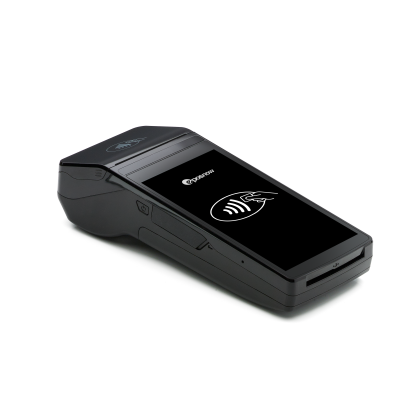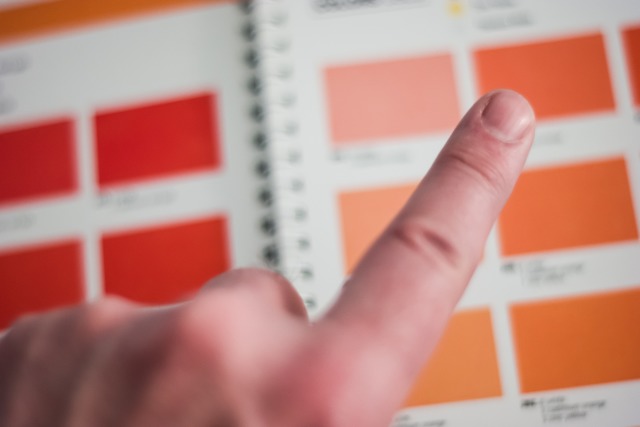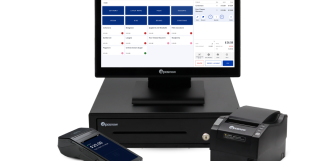What is a POS Terminal
Whether you’re starting your first business or your hundredth, if your enterprise involves regular transactions, you’ll need to know about point of sale (POS or EPOS, electronic point of sale).
A POS/EPOS is the point at which a customer makes a transaction with a merchant. This is usually a simple cash register. However, in the modern-day, a simple cash register can be so much more.
These days, a POS is the digital foundation of the business that uses it. A good POS works as a central point where you can process sales, access essential business tools (such as accounting software, marketing software, and online sales channels), and manage every other aspect of your business.
What is EPOS?
EPOS tills are where simple cash register functionality meets the expansive potential of computer software and the internet.
They are comprised of one or more terminals where sales are made, which can be fixed or mobile, as well as the many pieces of POS hardware and accessories that work with the terminal.
POS software usually has what’s referred to as a front till, where transactions take place, and a Back Office, where management stores and maintains business data. Both possess large degrees of flexibility to allow very different businesses to run using the same software.
The Back Office contains sections for basic business information and settings (where receipts can be designed, address and tax number stored, etc). Then management sections for products, stock levels, and customer and staff data. There’s also a large reporting section where data is collected and stored as transactions are made.
All of the above can be modified by apps and settings to form the perfect setup for different business needs, from hotels to grocery stores, to clothing outlets or mobile caterers. This can allow websites to feed sales and stock figures as well as the front till, or for data to be downloaded into 3rd party accountancy software.
For the best card payment deals, try Epos Now Payments for:
- Seamless integration with your POS
- Mobile and countertop options
- Easy to understand, blended rates
- Transaction and business reports all in one place
- 24/7 support for your POS and card payments

What is a POS terminal?
A POS terminal usually refers to the main electronic POS machine commonly seen behind bars, in service kiosks, and on shop counters. Given that many of these devices process hundreds of transactions every day, they tend to be sturdily built and often are in fixed positions on or beside a connected cash drawer.
However, this is not always the case. Given the need to cater to so many different businesses, flexibility is one of the most crucial characteristics of a good POS system, so providers work to ensure there are different types of POS terminal available to fit business needs.
Most current types of POS terminal use cloud-based software which links businesses using multiple terminals together and provide decentralized software access, allowing managers to update and observe business data from home, on the go, or even on holiday.
Cloud-based POS systems store data on the provider’s servers which means any hardware damaged on-site will not result in the loss of valuable product and sales information.
The cloud also allows businesses to use almost any computer device as a terminal. While providers have constructed fixed and mobile options (MPOS systems), iPads, tablets, small and large, with payment processing and without, but the software is very adaptable and will work in most situations. Some businesses run the technology on PCs or laptops, with a downloaded program or online.
The end result, is there are as many different types of EPOS terminals as there are computers.

Additional hardware
The hardware that can operate alongside POS terminals can be as wide-ranging as the businesses that use them. Sometimes, engineers will even edit software to allow further integration with new pieces of bespoke equipment that a business requires. However, some common accessories include:
- Printers: while many businesses use email receipts, even those making emails standard practice usually offer hard copies on request.
- Cash drawers: secure, electronically fired cash drawers are similarly vital for both cash and credit card payment receipts. While simple, these devices are business essentials and similarly come as part of a solution purchase.
- Card processing devices: card machines are crucial for any business, and an integrated payment machine speeds up transaction times and bust queues without any extra effort.
- Barcode scanners: a retail essential for instantly placing products into the basket.
- Barcode printers: a useful tool for printing shelf edge labels for retail businesses.
- KDS (kitchen display screen): a printer alternative to display orders in the kitchen. A handy hospitality tool.
- Magnetic strip card reader: for loyalty programs and staff security. This extra reads staff and customer cards to bring up accounts and allow access to the front till. Another stylish and secure time-saver.
- Display screen: these devices can inform customers of their basket total, or can advertise promotions and products to help acquire extra sales.
How to use a POS terminal
To get the most out of your POS terminal, it’s important to establish what you require from it and which business processes could potentially be made easier by using it.
Most POS software will provide product, stock, and staff management tools as standard, and you’ll need to consider how best to utilize those features.
For instance, hotkeys can be ordered and colour-coded and a good setup will shave time of transactions, which is hugely valuable to businesses and customers. Restaurants can colour vegetarian and vegan options green, or order products by popularity placing the more common products and categories at the top.
But in addition to these decisions, there is also the question of app integrations. Epos Now have been a successful provider for over a decade, and have hundreds of apps and partners that can be incorporated into a business's system through an appstore.
Meanwhile, POS reports are an enormously valuable asset to businesses. Automatic tables, charts, and graphs are created by POS software as businesses trade. To use your terminal to its fullest, you can use this data to inform your decision making, rotating underperforming products and training staff with weaker sales figures.
It may be that reports are only used away from the terminal. Back Office features can be viewed using the cloud on separate devices. Alternatively, everything can be performed on the main terminal; the choice is yours.
A POS terminal like no other
Epos Now’s range of hardware and software options provide businesses with the flexibility to achieve goals and expand without having to compromise on their POS. Terminals are stylish while being hardy and long-lasting, and all customers are provided with the best support to ensure they remain so.
Epos Now customers benefit from:
- Time-saving transaction software that cuts queues and impresses customers
- Multiple payment options including Epos Now Payments, for excellent card processing deals
- Simple, easy to use systems that can have new staff feeling comfortable straight away
- Stock control features that update speedily and send alerts, ensuring you never run short
Submit your details below to find out more about Epos Now products.
Epos Now solutions are the trusted foundation of over 40,000 businesses all over the world!
